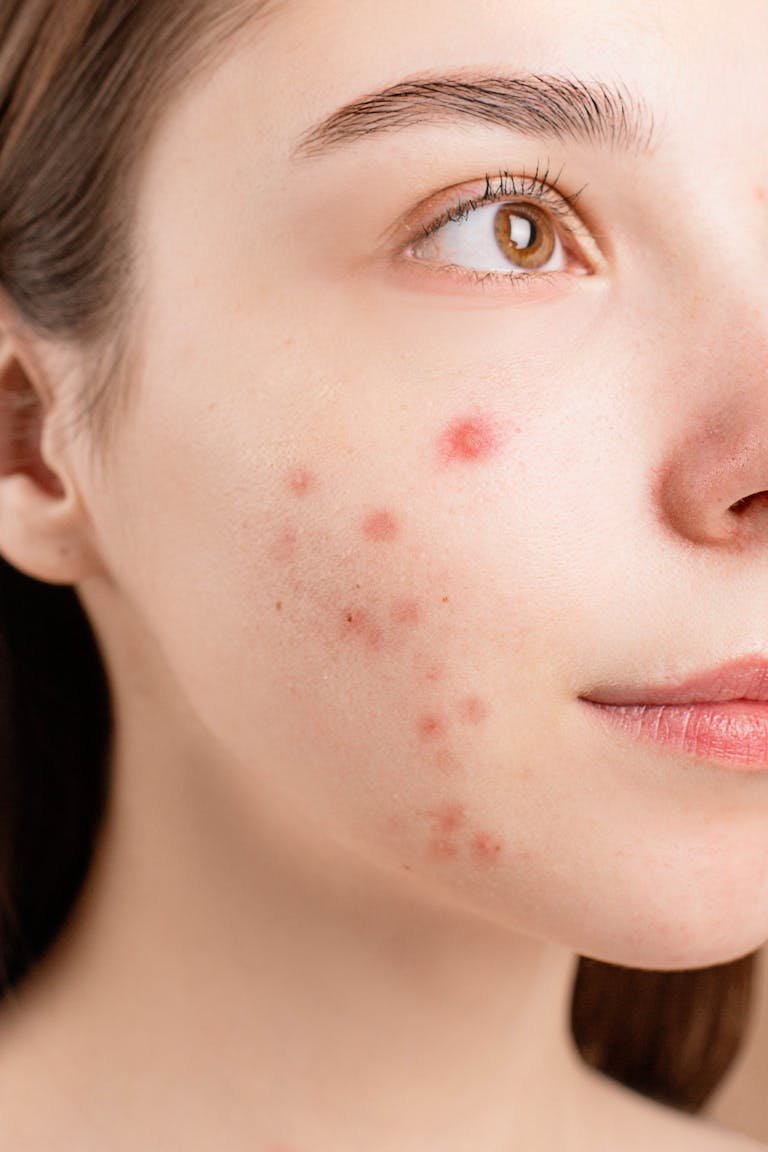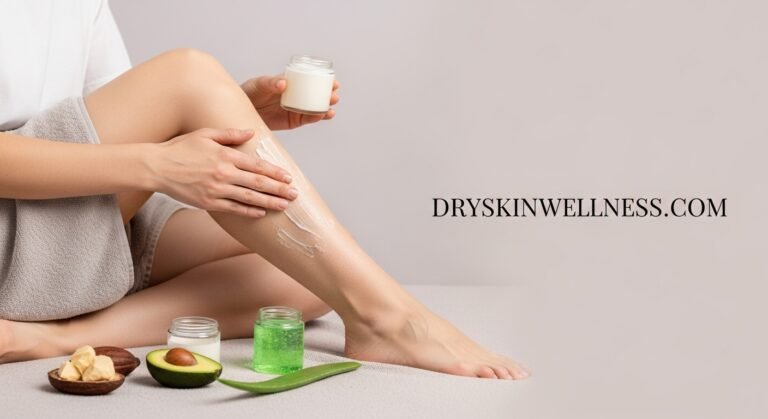Understanding Dry Skin with Red Dots: Causes And Solutions
Dry skin with red dots, also known as Keratosis Pilaris or “chicken skin,” is a common skin condition that affects millions of people worldwide. It manifests as small, raised red bumps on the skin, usually on the arms, thighs, and buttocks. These bumps may be accompanied by dryness, itchiness, and rough texture.
While this condition is not harmful or contagious, it can be a source of embarrassment and discomfort for those with it. In this article, we will dive deeper into the causes of dry skin with red dots and explore possible solutions to help manage and improve the appearance of this skin condition.
Causes
Dry skin with red dots is caused by a buildup of keratin, a protein found in the skin around hair follicles. This build-up blocks the opening of the hair follicle, resulting in a bump on the skin’s surface. The exact cause of this buildup is still unknown, but several factors may contribute to it.
Genetics
One of the leading causes of dry skin with red dots is genetics. It tends to run in families and is more common in people with a history of eczema, hay fever, or asthma. Studies have shown that up to 50% of individuals with this skin condition have at least one parent who also has it.
Dry Skin
Naturally, dry skin can make you more prone to developing dry skin with red dots. When the skin lacks moisture, it becomes more susceptible to irritation and inflammation, leading to red bumps.
Keratin Production
As mentioned earlier, dry skin with red dots is caused by a buildup of keratin. Some people may have an overproduction of this protein, making them more likely to develop this condition.
Hormonal Changes
Fluctuations in hormones can also play a role in developing red dots. It is common for women to experience an increase in this condition during puberty, pregnancy, and menopause when hormonal changes are at their peak.
Treatment
While there is no cure, there are ways to manage and improve its appearance. Here are some solutions that you can try:
Moisturize Regularly
Since dry skin is one of the leading causes of this condition, it is essential to keep your skin hydrated by moisturizing regularly. Look for a moisturizer that contains ingredients like hyaluronic acid and ceramides, which help to lock in moisture and improve the skin’s barrier function.
Exfoliate
Gentle exfoliation can also help to reduce the appearance of red bumps and improve the texture of the skin. Look for chemical exfoliants like salicylic or lactic acid, which can effectively remove dead skin cells without irritating them.
Avoid Harsh Products
Using harsh skincare products can aggravate red dots, making it worse. Avoid using products that contain fragrances, alcohol, and other potential irritants. Opt for gentle, fragrance-free products that are suitable for sensitive skin.
Topical Treatments
There are several topical treatments available over the counter that can help to improve the appearance of dry skin. Products containing urea, alpha-hydroxy acids, or retinoids can effectively exfoliate and soften the bumps. It is best to consult a dermatologist before trying these treatments, as they may not suit everyone.
Reduce Stress
Stress can worsen certain skin conditions, including red dots. Finding ways to manage stress, such as through exercise, meditation, or therapy, can help improve the appearance of the bumps and overall skin health.
Tiny red dots on the skin
Tiny red dots on the skin, and itch a common symptoms. As the bumps are raised and rough, they can cause discomfort and irritation, leading to scratching and further aggravation of the symptoms. The itchiness may also be caused by dryness, as the skin lacks moisture and becomes more susceptible to irritation.
To alleviate the itchiness, it is essential to keep the skin moisturized and avoid scratching or picking at the bumps. Applying a cold compress or anti-itch creams or lotions can also help to soothe the itchiness. However, if the itching persists or becomes severe, it is best to consult a doctor for further advice and treatment.
Maintain the Control
Regularly moisturizing, exfoliating, avoiding harsh products, and reducing stress are all effective ways to keep under control. Remember to consult a dermatologist if the bumps become painful or start to bleed, as this may indicate a more severe underlying issue.
FAQ
Q: Are there any specific triggers that can worsen dry skin?
A: Yes, certain factors like hot showers, harsh soaps, and cold weather can aggravate this condition.
Q: Can diet play a role in developing dry skin?
A: While there is no direct link between diet and this skin condition, some people have reported improvements in their symptoms after making changes to their diet, such as reducing dairy or gluten intake.
Q: Can red dots be treated with prescription medication?
A: In severe cases, a dermatologist may prescribe topical or oral medications to treat this condition. However, it is essential to consult a doctor before using any medicine.
Q: Is dry skin with red dots contagious?
A: No, this condition is not contagious and cannot be passed from one person to another.
It is a common skin condition that affects individuals differently.
Final Thought
Dry skin with red dots may not be a severe medical condition, but it can still affect one’s confidence and quality of life. Understanding the causes of this condition can help in finding the right solutions to manage and improve its appearance.
With proper care and management, you can have smoother, healthier-looking skin despite having dots. So don’t let this condition hold you back from feeling confident in your skin. Keep trying different solutions until you find what works best for you, and be bold and seek professional advice. Remember, everyone’s skin is unique, and what works for others may not necessarily work for you. Stay patient and persistent in your skincare routine, and you will see improvements in time. With proper care and management, dry skin with red dots can become a thing of the past.
So embrace your skin and love it for all its uniqueness. As the saying goes, “Healthy skin is a reflection of overall wellness.” So take care of yourself, and your skin will thank you. Keep glowing!


